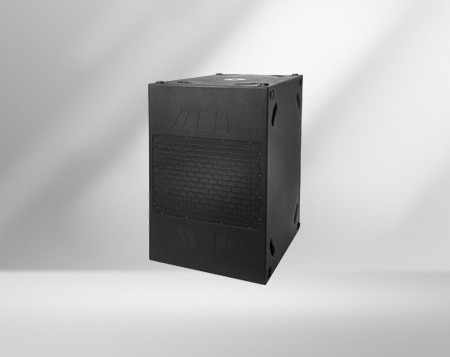source:Industry News release time:2022-04-18 Hits: Popular:Brand bar audio wholesale

The non-technical problems that Z often encounter when recording dry drafts of vocals in the studio are spray, labiodental, and saliva. The trouble with Z is that no matter how careful the pronunciation is, it is still difficult to improve the problem immediately or completely; even the musical expression, pitch, and tempo have reached the perfect state of Z, but there are always spurts at the key points of certain words. Mic, labiodental problem, this is really unpleasant. Today I'm going to share some ways to improve and reduce this type of problem.
1. Windshield
The wind hood, commonly known as the saliva hood, is mainly made of wire mesh and metal mesh (fluid mechanics/spoiler) (as shown in the figure below).
In addition to installing a windshield, it can block the singer's saliva droplets (the wire mesh windshield is especially effective) and spray it directly on the microphone to protect the microphone and prolong the life of the radio diaphragm. It can also effectively reduce the damage caused by special articulation and pronunciation. In addition, when some singers have too many labiodental sounds and cause high-frequency harshness, you can cross-exchange and test the windshield of the two materials to find a suitable one for the singer's labiodental sound characteristics and frequency. The windshield can improve such problems. As for which material is suitable for which type of singer, there is no certain statement. It is mainly based on the overall style of the current song, the characteristics and habits of the singer's pronunciation and articulation, and the type and characteristics of the microphone.
2. Microphone angle
For example, in order to reduce the windward resistance during a race, the body angle will be slightly tilted, or the body will be worn with tight-fitting clothes, which is to reduce the windward surface area of the body and the resistance will be large.
Therefore, when recording, slightly adjust the inclination angle of the microphone itself, so that the vibration mode will not directly receive the shock wave of the singer spraying the microphone and produce a low-frequency thumping sound.
3. The sounding position is relative to the projection position of the diaphragm
This point is quite similar in principle to the previous point, but the singer himself adjusts the projection position of the sound on the microphone, so that the sound is slightly staggered and deliberately recorded incorrectly on the radio diaphragm; this way of radio can significantly improve the microphone spray With the condition of labiodental sound, with the use of the windshield, the effect is even better.
4. Radio distance
This refers to the distance between the singer and the microphone. In fact, each type of microphone (moving coil, ribbon, capacitor) and different brands of microphones will have different personalities and characteristics, so how to adjust the distance from the microphone and how to interact with the microphone is also the best It is adjusted by a more experienced sound engineer who is familiar with the characteristics of the microphone; the sound engineer uses his professional judgment and experience to decide ''how much distance should be adjusted to improve the microphone and labio-dental sound'' while maintaining the best sound quality.
Proximity Effect Proximity Effect: This effect occurs when the distance between the singer and the microphone is close to a certain degree (different types of microphones and different vibration mode design principles will have different proximity effect distances). With this effect, the middle and low frequencies of the sound will become more prominent, resulting in the singer's tone when singing will be significantly amplified as a whole (most of the details of the tone are hidden in the mid-low frequency range; but because the sound collection distance is shortened, As a result, the problems of spraying wheat and labiodental sound are also amplified in energy), and problems such as labial tooth and saliva sound will also intensify simultaneously.
Usually when we are recording, the recommended sound-receiving distance is 1 fist from the microphone cover to the microphone, and the distance from the singer to the microphone cover is 1~2.5 fists (due to the acoustic physical characteristics of the ribbon microphone, we do not recommend the sound collection distance here. Range); the above are the basic operation suggestions for common microphone types. If you are not familiar with the appropriate distance, it is recommended to refer to the microphone manual and actually record and test the sound characteristics produced by various radio distances.
Popular recommendation
A1 Car stereo manufacturer
2021-07-26Resolution 1.5 ktv bar sound Vendor
2021-07-16F215 MK2 ktv bar sound Factory
2021-07-14D80/D100/D120 KTV brand audio Vendor
2021-07-26Resolution 4T Touring Bar use sound Vendor
2021-07-16DS 210Sound bar Vendor
2021-07-17RM12 Sound bar wholesaler
2021-07-15MB112Anhui Bar Audio Vendor
2021-07-14XD18I Bar speakers wholesale
2021-07-26Resolution 4D Downfill KTV audio Factory
2021-07-17BR132A Bar speaker wholesale
2021-07-14XD18C Big sound bar Merchant
2021-07-26How to deal with KTV audio network failure and power amplifier failure.Bar speaker Vendor
2021-11-30How much is the mini bar audio equipment? Mateng Audio
2022-12-08Precautions for the use of stage audio
2022-02-14Five bad habits that shorten the life of your speakers
2022-09-26How to make bar audio equipment show better sound quality?Bar sound engineering Vendor
2021-11-09Dingyuan's most fun bar TAICHI PARTY special audio---Mateng Audio
2022-11-07Chongqing DNA CLUB professional audio is provided by Mateng Audio
2022-01-24Professional audio basic knowledge classic
2022-02-26What are the precautions when using conference speakers?
2021-09-07Chengdu CLUB DNA bar audio is provided by Mateng Audio.Bar sound layout
2022-02-15ID-X CLUB Ma Teng Audio in Hohhot Bar, Inner Mongolia
2022-09-23Is the effect of conference sound engineering good?Speakers for bars Vendor
2021-11-27